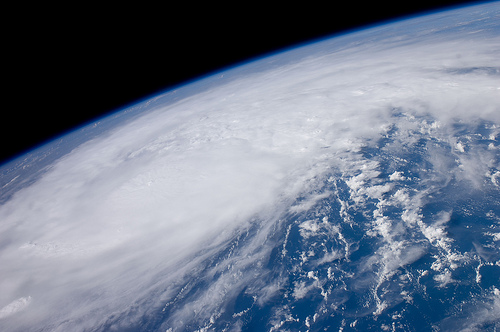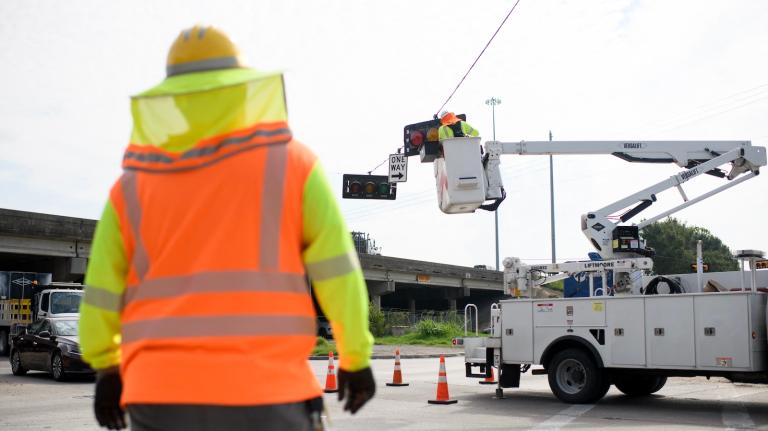Ignore the members of the peanut gallery bleating about whether or not we can blame hurricane Irene on global warming. What matters is that in the future, warmer temperatures will mean more moisture in the air, so more flooding. And higher sea levels will make cities, especially New York, substantially more vulnerable to storm surges.
Elizabeth Kolbert, in The New Yorker:
Are more events like Irene what you would expect in a warming world? Here the answer is a straightforward "yes."
Whether or not there will be more hurricanes is still up for debate. But more flooding? Surely.
[Malcolm] Bowman, an oceanography professor at Stony Brook University, has warned that the city could one day have "flood days," the way it now has snow days.
Chris Mooney echoes these sentiments, noting that the debate over whether Irene, in particular, can be blamed on climate change is a straw man:
I’m saying that Irene focuses our attention on our serious vulnerability, and we need to seize that moment — because too often our default position is to act like nothing bad is going to happen.
John Horgan of Scientific American shows the absurdity of debating whether or not we should discuss present storms in the context of climate change, whose primary liability is, after all, more devastating storms.
Here’s another question: When, if ever, will it be appropriate and responsible to link an extreme weather event such as Irene to anthropogenic climate change? And when that day comes, will making such a linkage be utterly moot?
Kolbert sums it up nicely. Here's where our focus must remain:
When we add all of these risk factors together, we can say with a great deal of confidence that in the future, there will be more and more events like Irene. We can comfort ourselves by saying that this particular storm was not necessarily caused by global warming. Or we can acknowledge the truth, which is that we are making the world a more dangerous place and, what’s more, that we know it.




